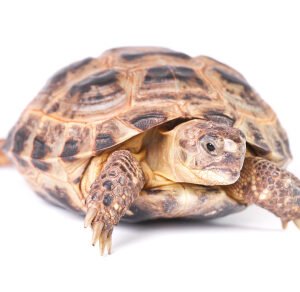russian tortoise lifespan
Factors Influencing the Lifespan of Russian Tortoises
russian tortoise lifespan ,Russian tortoises (Testudo horsfieldii) have garnered considerable interest due to their unique characteristics and longevity. However, various factors significantly influence their lifespan, which can extend up to 50 years or more under optimal conditions. Understanding these influencing factors is crucial for ensuring their well-being and long life.
Genetics play a vital role in determining the overall health and potential lifespan of an individual tortoise. Some tortoises might inherit traits that predispose them to longer lives while others may encounter hereditary health issues. Consequently, selecting healthy stock from reputable breeders is essential to ensure a robust genetic foundation for potential longevity.
Diet is another critical factor affecting the lifespan of Russian tortoises. A balanced diet comprised of leafy greens, vegetables, and limited amounts of fruit is important for their health. Poor nutrition can lead to metabolic disorders, parasites, and obesity, subsequently shortening their lifespan. Providing a varied diet allows tortoises to receive necessary vitamins and minerals, supporting their immune system and overall vitality.
The habitat in which Russian tortoises are kept significantly impacts their longevity. An appropriate enclosure mimics their native environment, providing ample space to roam and burrow. Indoor habitats should have adequate temperature gradients, ensuring that tortoises can regulate their body temperature effectively. Moreover, an outside habitat with access to natural sunlight promotes vitamin D synthesis, essential for calcium metabolism and shell health.
Environmental conditions, such as temperature, humidity, and social dynamics, can also affect overall health. Maintaining optimal humidity levels prevents respiratory issues, while stable temperatures help in digestion and metabolic functions. Additionally, social interactions with other tortoises should be monitored, as stress from overcrowding can lead to health problems that negatively impact lifespan.
Common health issues, such as respiratory diseases, shell deformities, and metabolic bone disease, pose threats to the longevity of Russian tortoises. Regular veterinary check-ups and prompt treatment of any health concerns are crucial in prolonging their life. Each of these factors interplays uniquely to influence the lifespan of Russian tortoises, making attentive care indispensable for achieving a long, healthy life.
Average Lifespan and Care for Russian Tortoises
russian tortoise lifespan ,Russian tortoises (Testudo horsfieldii) are known for their impressive longevity, often living between 40 to 50 years when well cared for in captivity. In the wild, their lifespan can also reach similar ages; however, various environmental factors such as predation, availability of food, and habitat destruction can significantly shorten their lives. Captive Russian tortoises, when provided with optimal care, have shown the potential to surpass 50 years. Numerous studies indicate that those in controlled environments tend to live longer due to a consistent supply of food, absence of predators, and specialized care designed to meet their specific needs.
To ensure a long and healthy lifespan, proper care is crucial. A balanced diet primarily comprising leafy greens, such as collard greens and dandelion, is essential. It’s important to avoid feeding them high-protein foods or fruits excessively, as these can lead to health complications. Additionally, providing a calcium supplement is beneficial for shell strength and overall health.
The habitat of a Russian tortoise also plays a significant role in its lifespan. The enclosure should mimic their natural environment, offering both areas for basking under heat lamps and shaded spots. A spacious, well-ventilated outdoor enclosure is ideal, but if kept indoors, ensure they have access to UVB lighting, which is crucial for their metabolic processes.
Routine health checks are important for early detection of any potential issues. Monitoring for signs of illness, such as lethargy or changes in eating habits, can aid in timely veterinary intervention. Regular check-ups with an experienced veterinarian specializing in reptiles can help in identifying common ailments and discussing preventative care strategies. These measures, alongside attention to diet, habitat, and overall well-being, are vital in maximizing the lifespan of Russian tortoises.
Showing the single result
-
Tortoises for Sale
russian tortoise
Original price was: $199.00.$169.00Current price is: $169.00. Add to basket

